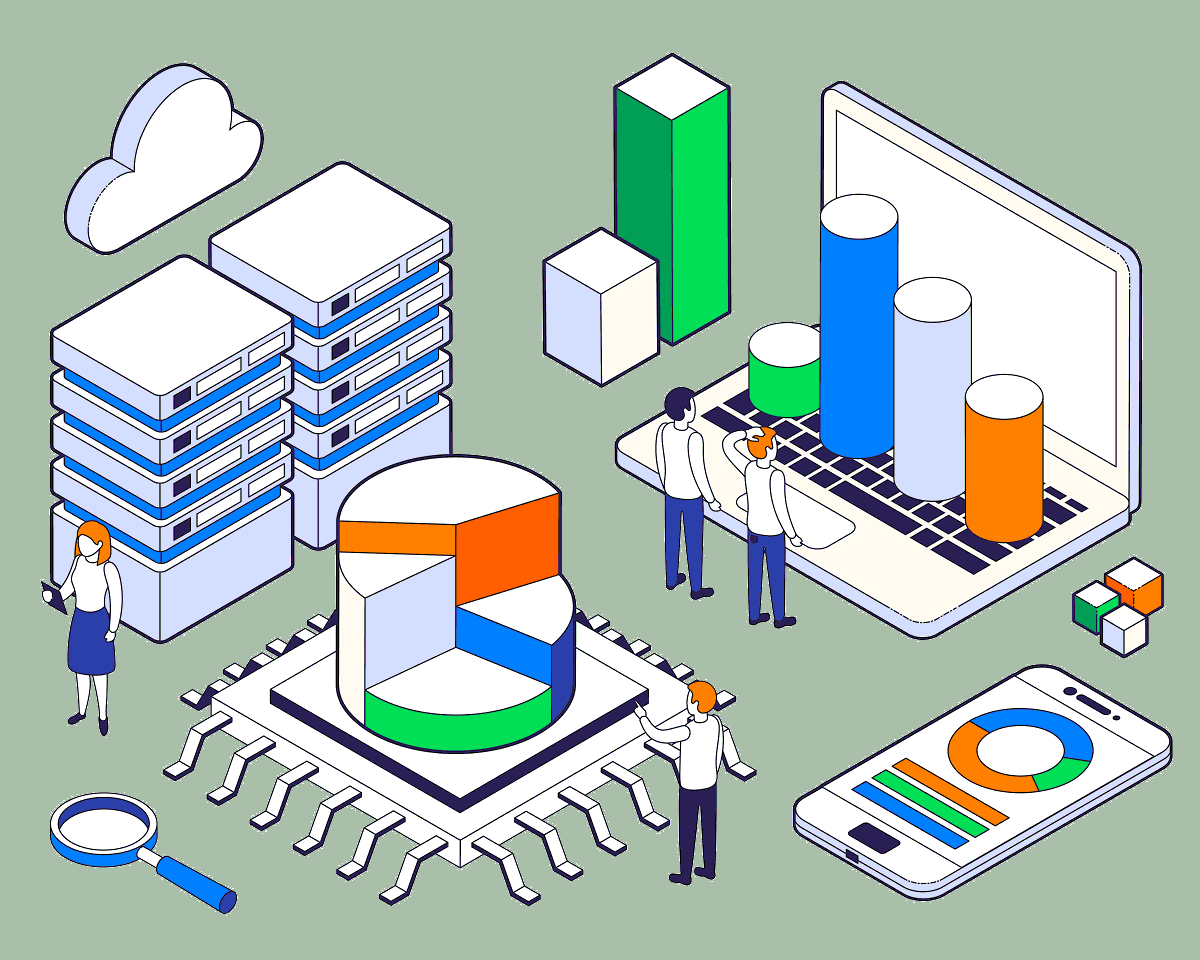Datafication
Datafication is the process of transforming any kind of information or activity into digital data. It has revolutionized the way we collect, analyze, and utilize information. With the rapid growth of technology, datafication has become more accessible, enabling businesses and organizations to make better decisions and improve their overall performance.

In this article, we will discuss the advantages of datafication and how it can benefit businesses and organizations.
Improved Decision Making
Datafication provides businesses with a wealth of information that they can use to make informed decisions. With the right data, businesses can identify patterns and trends, and use them to make predictions about the future. This can help businesses make strategic decisions and stay ahead of their competitors.
For example, data analytics can help businesses analyze customer behavior and preferences, allowing them to tailor their marketing strategies and product offerings to better meet their customers' needs. This can improve customer satisfaction and loyalty, leading to increased revenue and growth.
Increased Efficiency
Datafication can also help businesses streamline their processes and operations, leading to increased efficiency and productivity. By analyzing data, businesses can identify areas where they can improve their processes and eliminate inefficiencies.
For example, data analytics can help businesses optimize their supply chain by identifying bottlenecks and areas where they can reduce costs. This can lead to faster delivery times, lower costs, and improved customer satisfaction.
Improved Customer Experience
Datafication can also help businesses improve their customer experience. By analyzing customer data, businesses can identify customer needs and preferences, and tailor their offerings to better meet those needs. This can lead to improved customer satisfaction and loyalty.
For example, data analytics can help businesses personalize their marketing efforts by delivering targeted messages to specific customer segments. This can improve the relevance and effectiveness of marketing campaigns, leading to increased engagement and conversions.
Competitive Advantage
Datafication can give businesses a competitive advantage by enabling them to make data-driven decisions and stay ahead of their competitors. By leveraging data, businesses can identify emerging trends and stay ahead of changes in the market.
For example, data analytics can help businesses monitor their competitors and identify areas where they can differentiate themselves. This can help businesses develop unique offerings and improve their competitive position in the market.
Better Risk Management
Datafication can also help businesses manage risk by providing them with better insights into potential risks and threats. By analyzing data, businesses can identify potential risks and take proactive measures to mitigate them.
For example, data analytics can help businesses identify potential security threats and take measures to protect their data and systems. This can help businesses avoid costly data breaches and other security incidents.
Improved Innovation
Datafication can also drive innovation by providing businesses with new insights and ideas. By analyzing data, businesses can identify new opportunities and develop innovative products and services.
For example, data analytics can help businesses identify emerging trends and develop new products and services that meet the evolving needs of their customers. This can lead to new revenue streams and increased growth.
In conclusion, datafication is a powerful tool that can provide businesses with a wealth of information that they can use to make informed decisions, improve their operations, and stay ahead of their competitors. By leveraging data, businesses can improve their efficiency, customer experience, and competitive position in the market. Additionally, datafication can help businesses manage risk, drive innovation, and identify new opportunities for growth. As technology continues to evolve, datafication will become increasingly important for businesses looking to stay ahead of the curve
Better Resource Allocation
Datafication can also help businesses allocate resources more effectively. By analyzing data, businesses can identify areas where they can reduce costs and optimize their resource allocation.
For example, data analytics can help businesses identify areas where they are overstaffed or where they can automate processes to reduce labor costs. This can lead to more efficient resource allocation and lower operational costs.
Improved Forecasting
Datafication can also help businesses improve their forecasting capabilities. By analyzing data, businesses can make more accurate predictions about future trends and outcomes, enabling them to make better decisions.
For example, data analytics can help businesses forecast demand for their products and services, allowing them to adjust their production and inventory levels accordingly. This can help businesses avoid stockouts and overproduction, leading to improved profitability.
Better Collaboration
Datafication can also improve collaboration within businesses and between businesses and their partners. By sharing data, businesses can work together more effectively and make more informed decisions.
For example, data analytics can help businesses collaborate with suppliers and partners to optimize their supply chain. By sharing data, businesses can identify opportunities for cost savings and efficiency improvements.
Improved Accountability
Datafication can also improve accountability within businesses. By tracking and analyzing data, businesses can hold themselves accountable for their performance and identify areas where they need to improve.
For example, data analytics can help businesses track employee performance and identify areas where they need to provide additional training or support. This can lead to improved employee productivity and satisfaction.
In summary, datafication has numerous advantages for businesses and organizations. It can help businesses make informed decisions, improve their operations, and stay ahead of their competitors. Additionally, datafication can help businesses manage risk, drive innovation, and identify new opportunities for growth. As technology continues to evolve, datafication will become increasingly important for businesses looking to stay competitive in the market.


